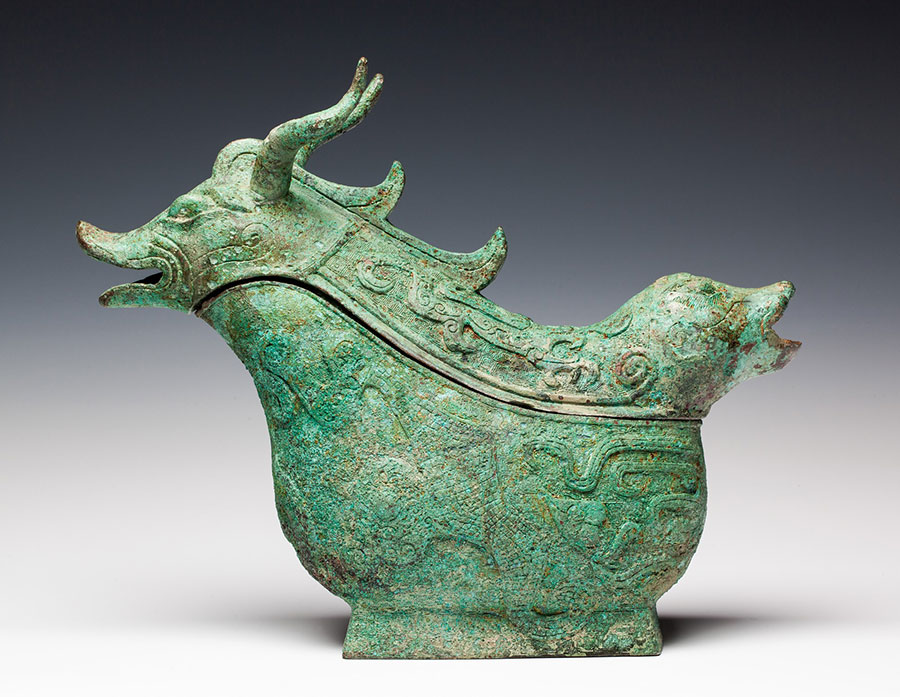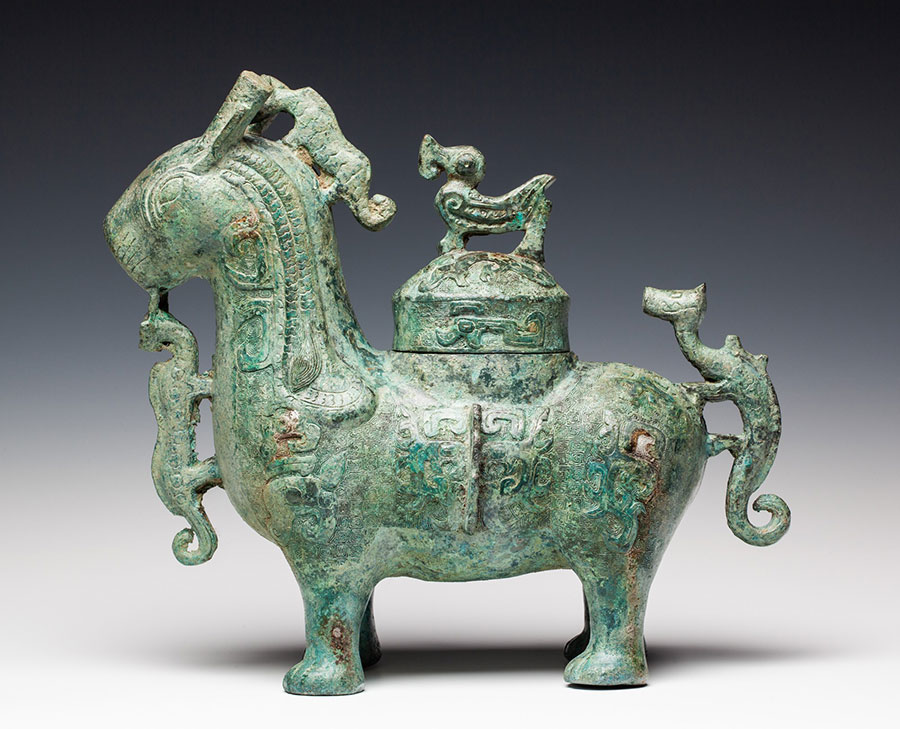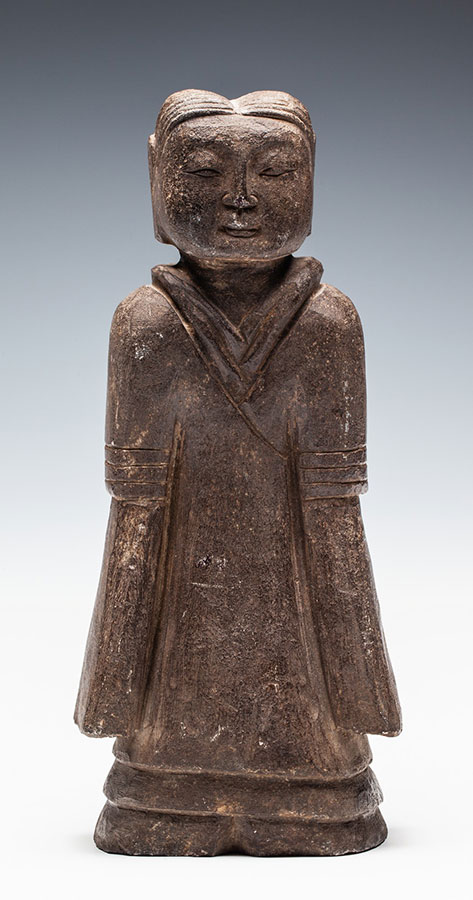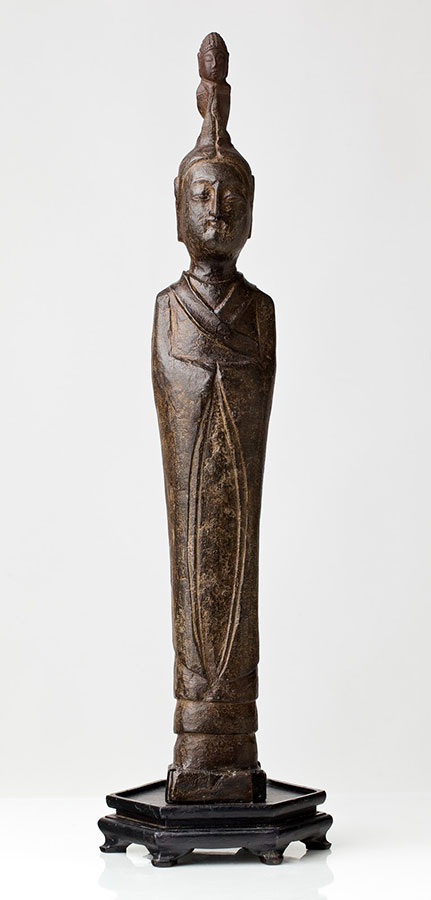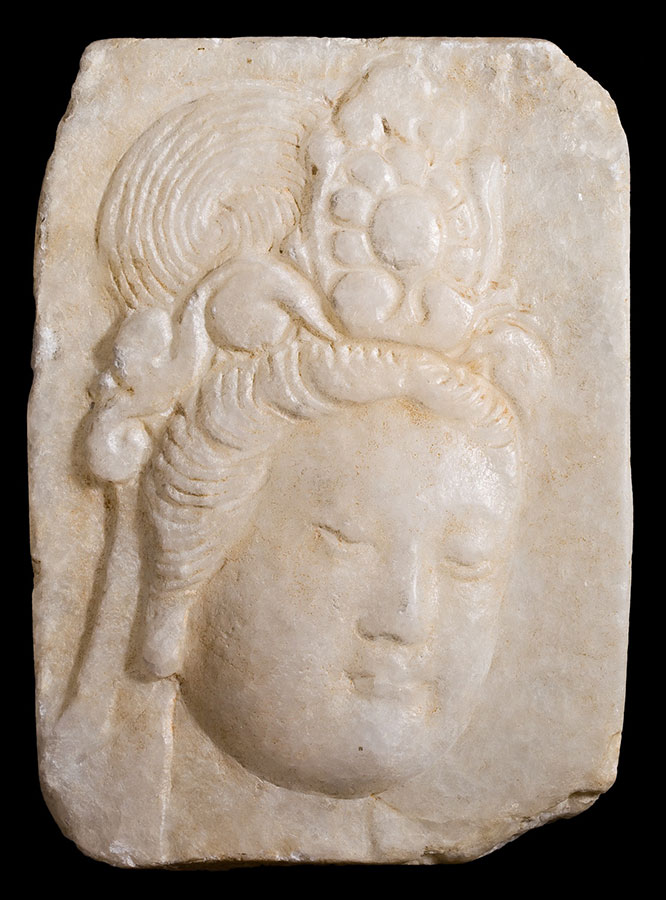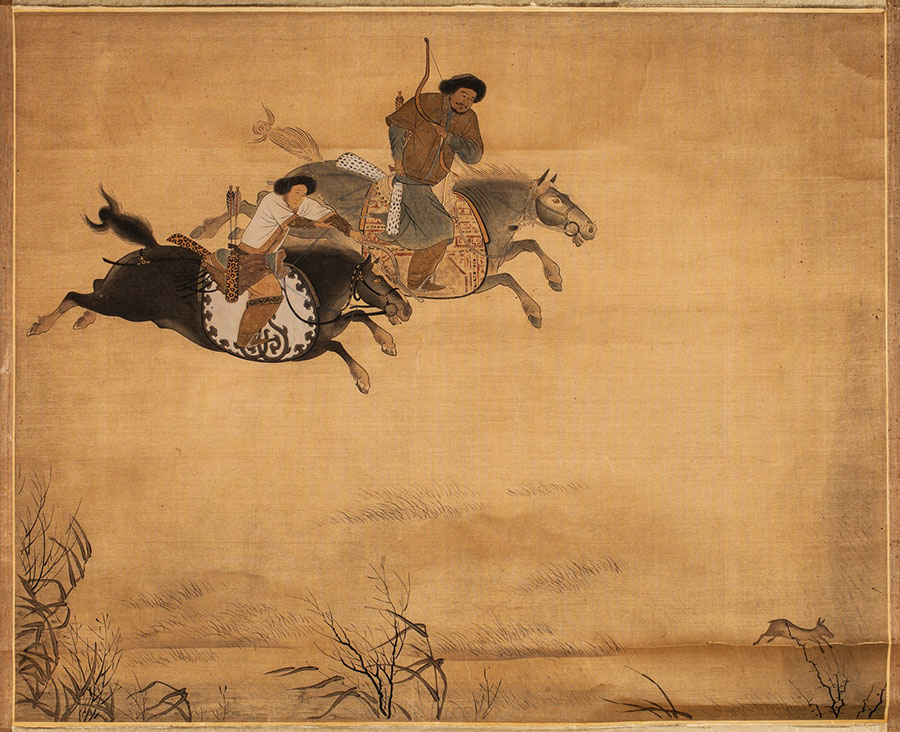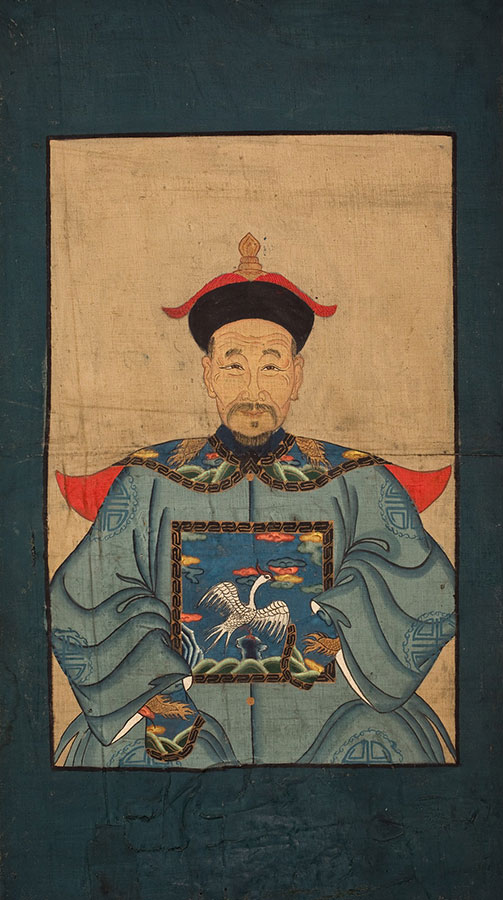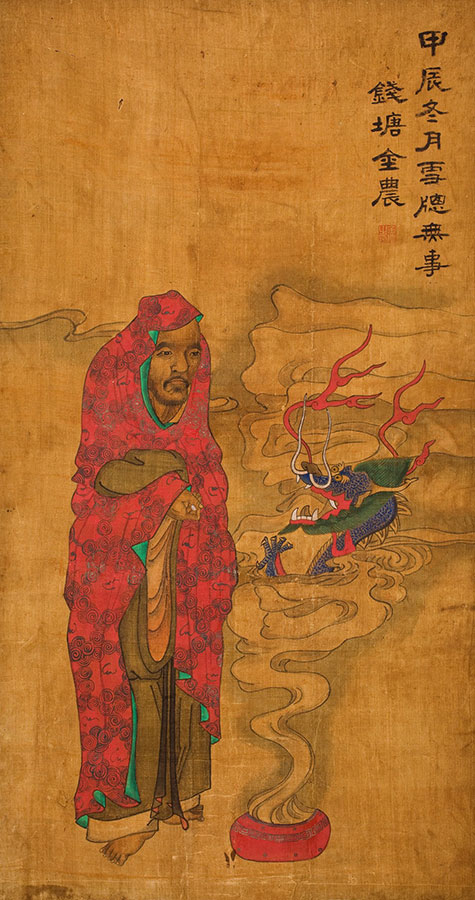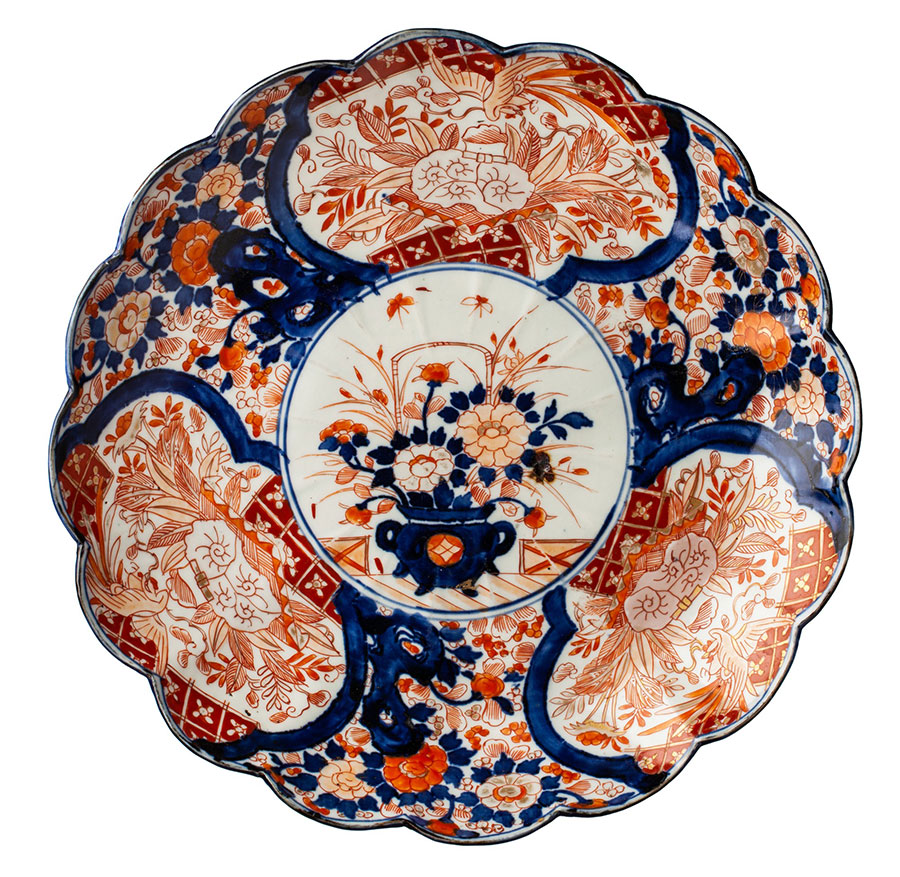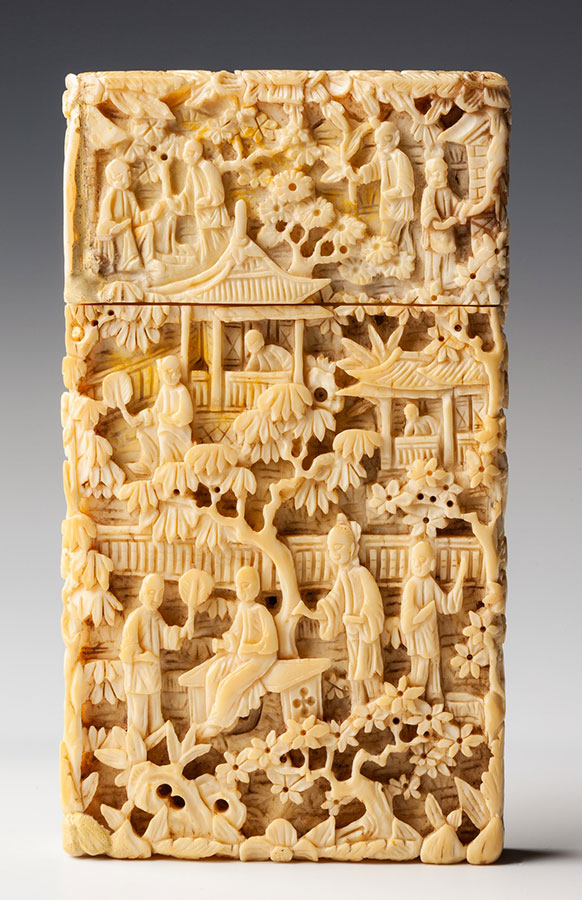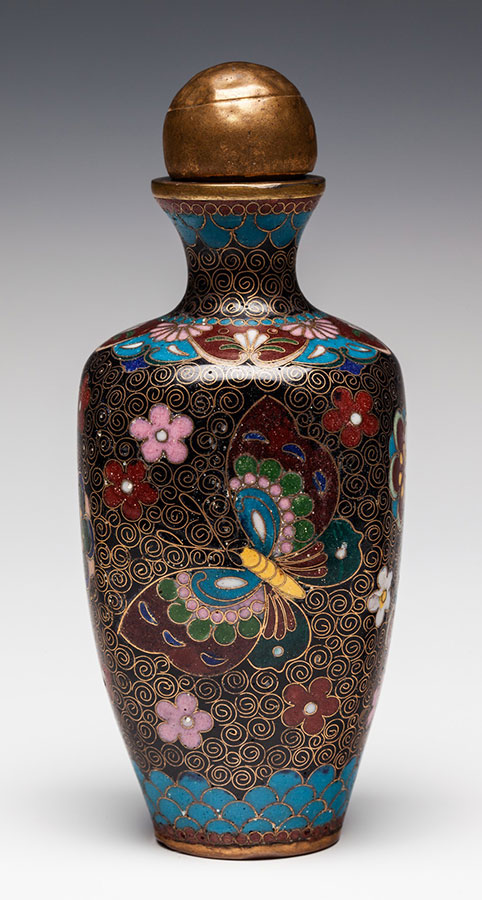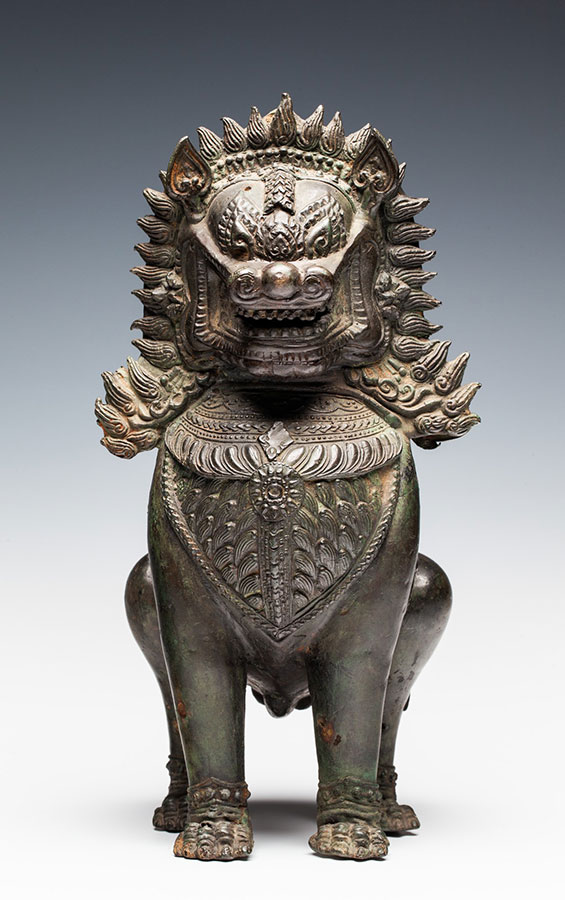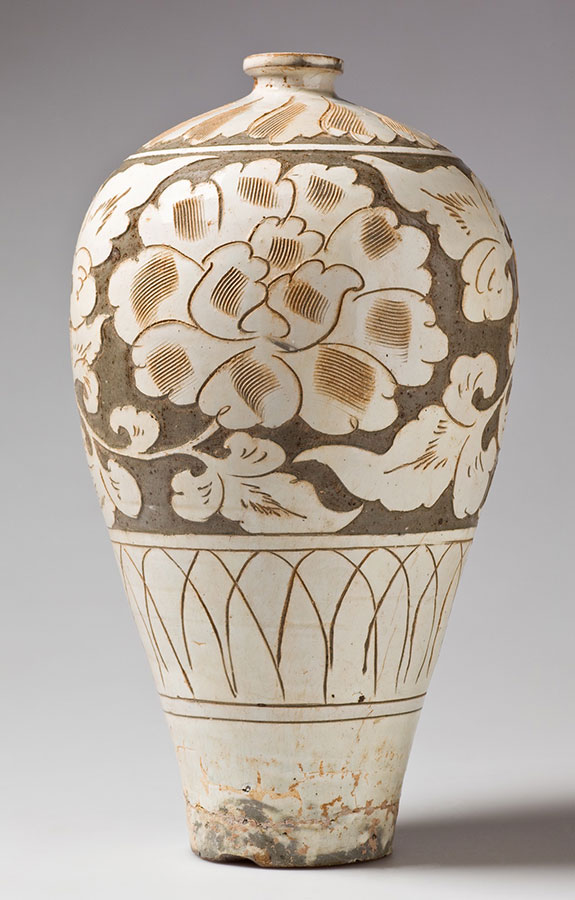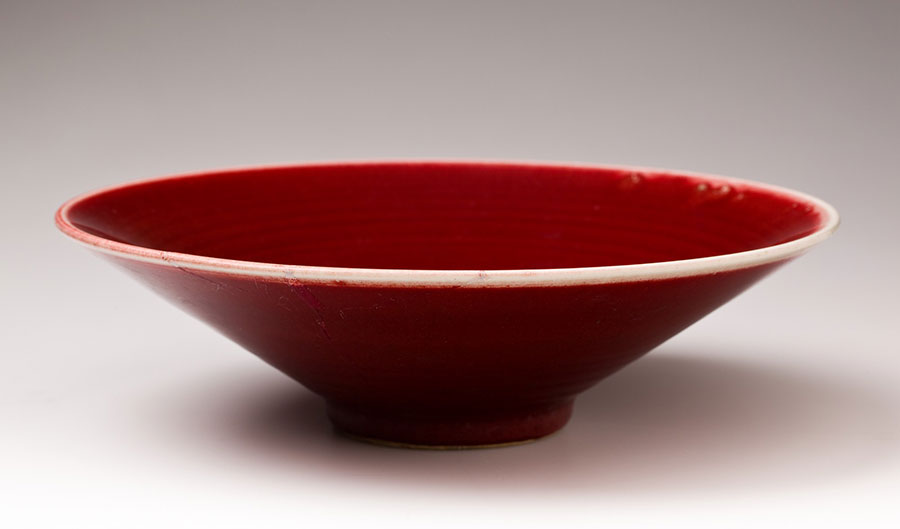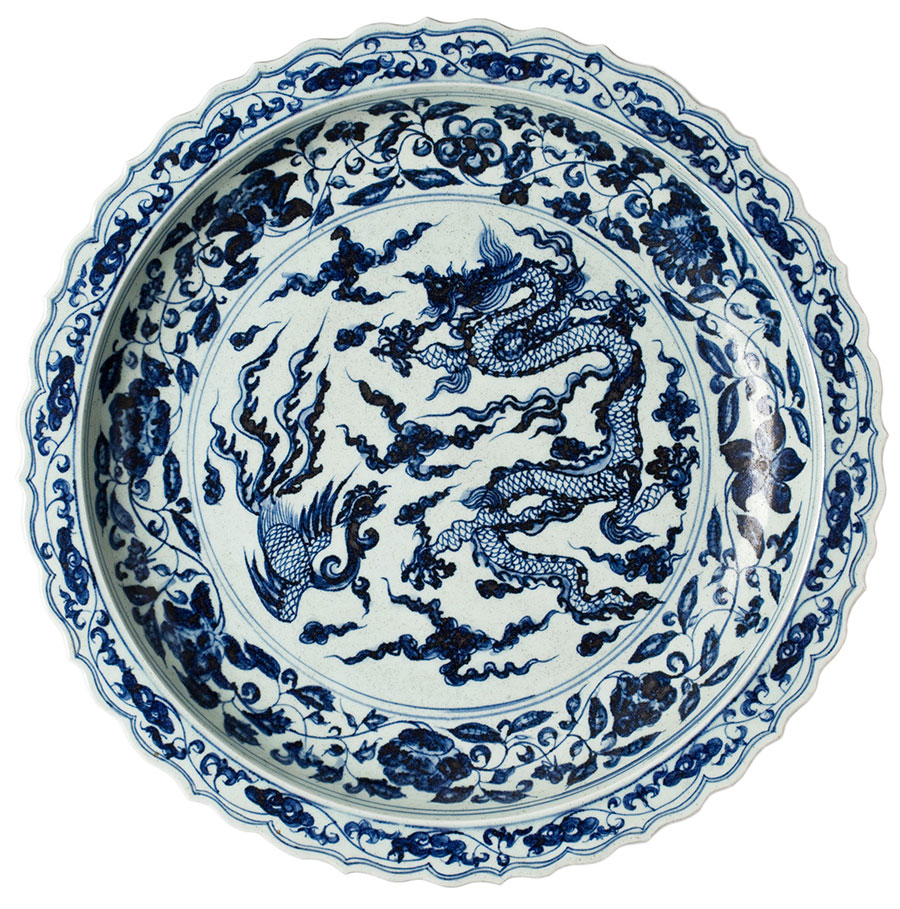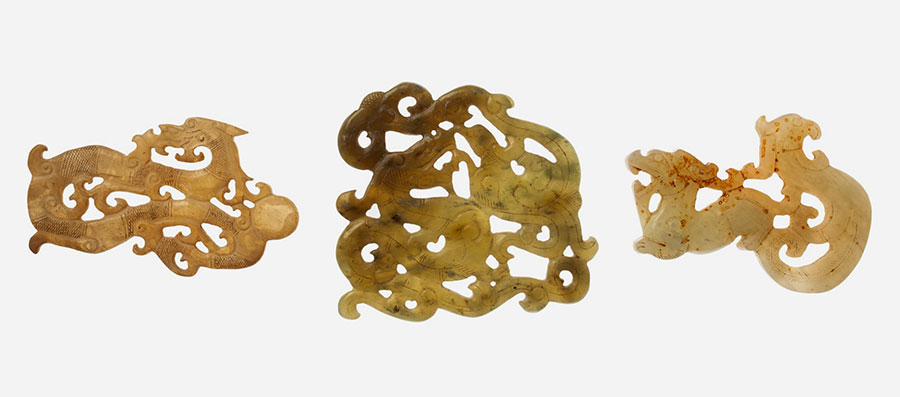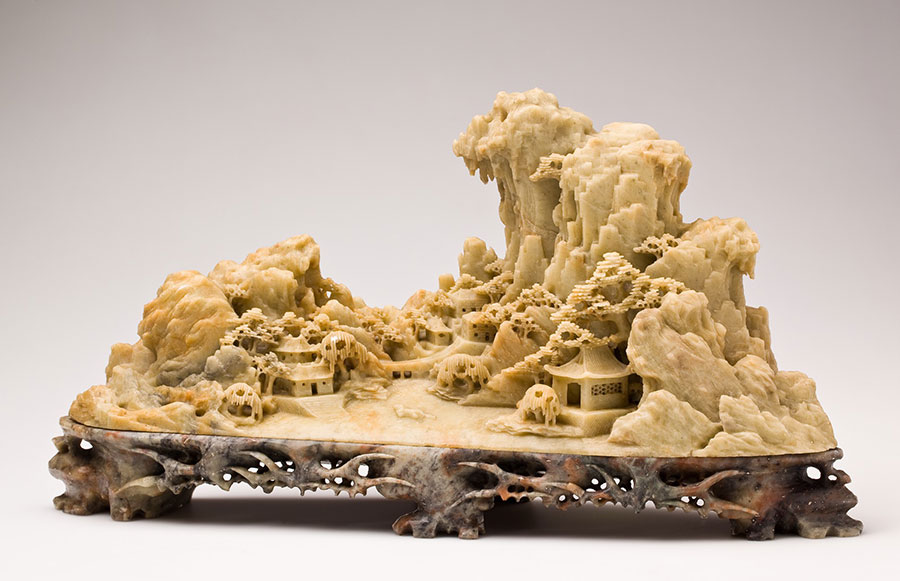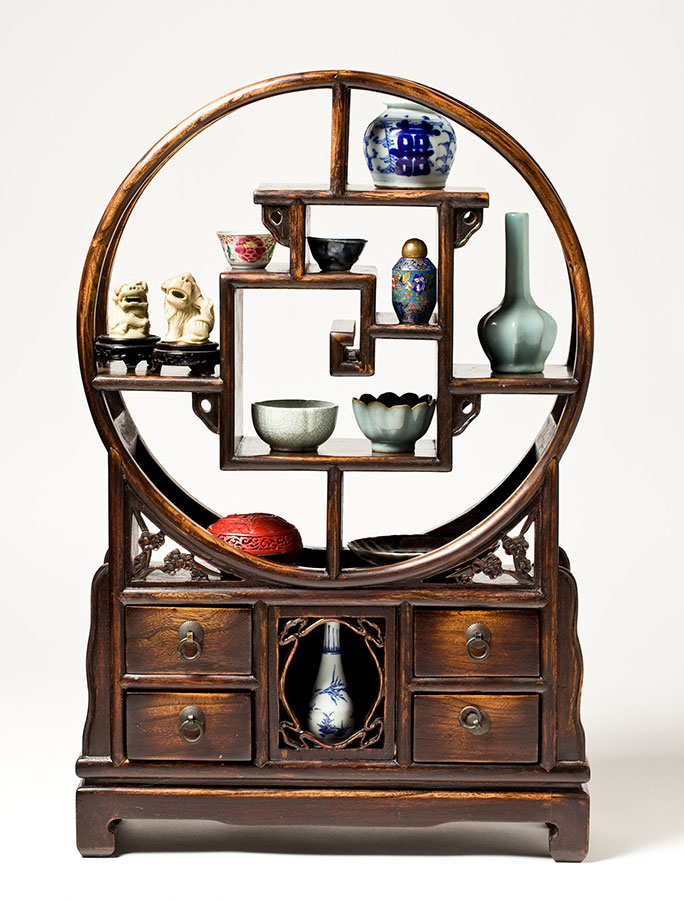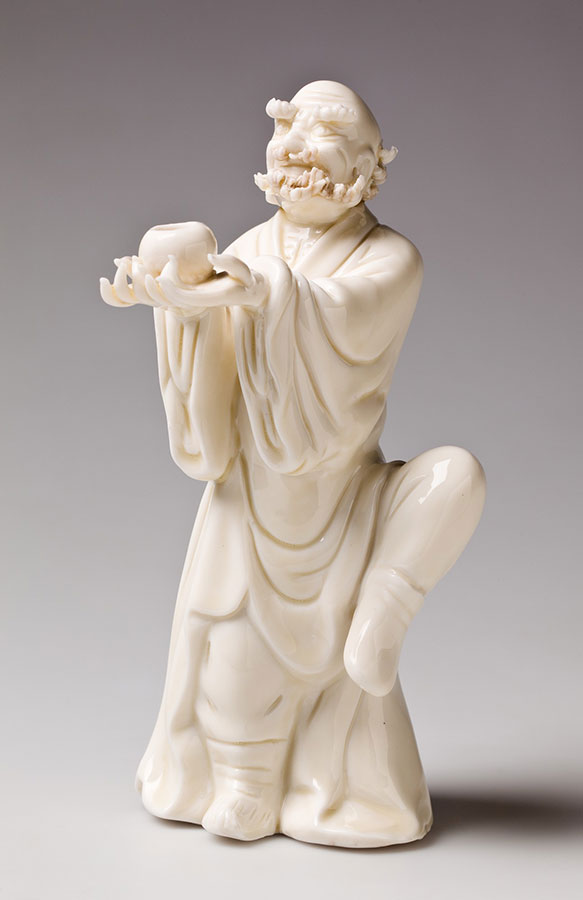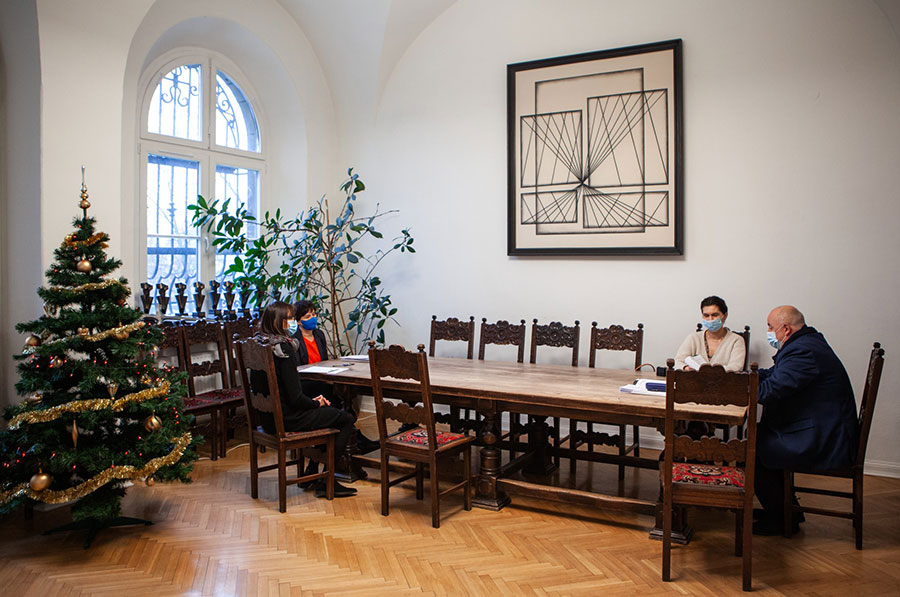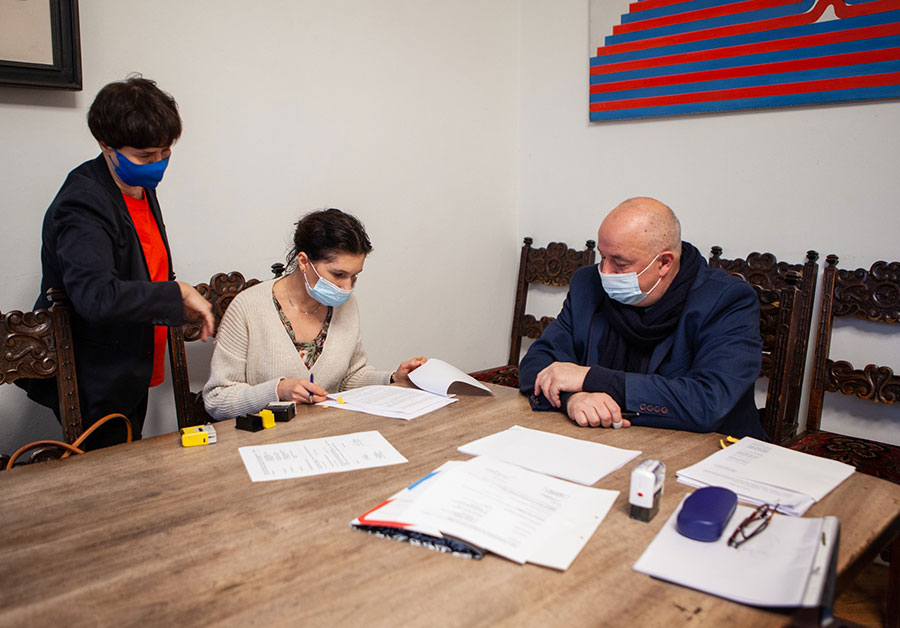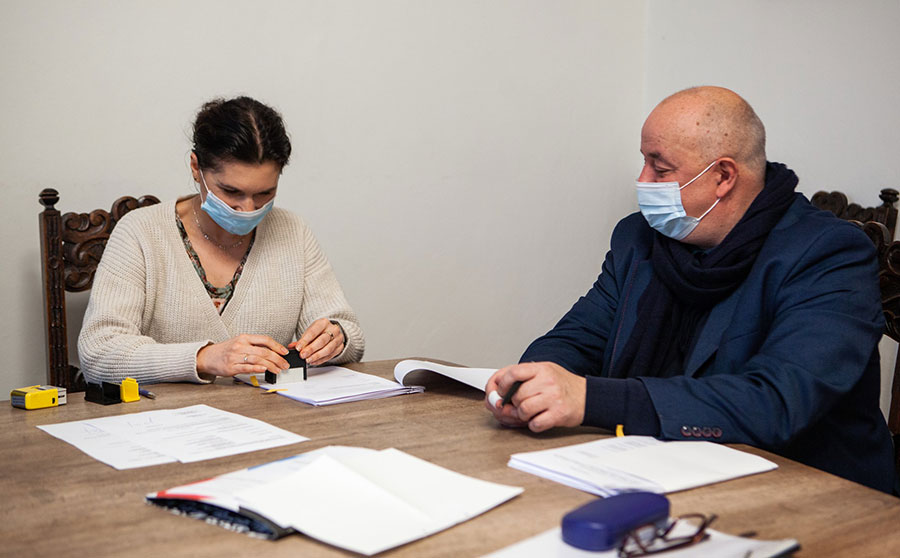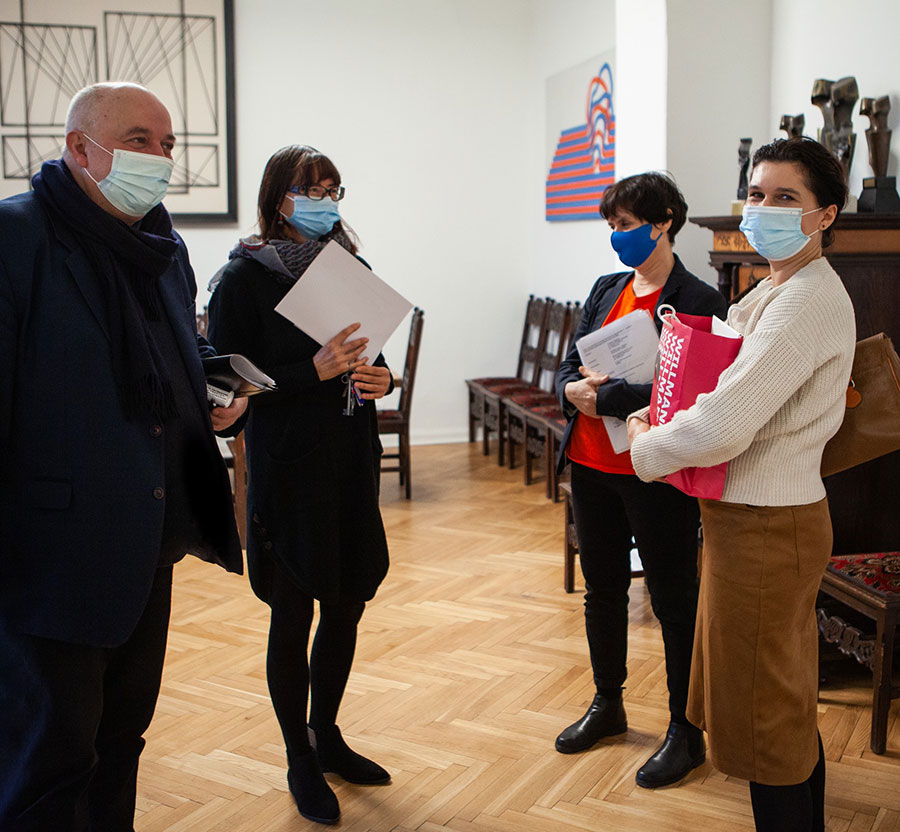The private collection of over 600 artefacts from the Far East assembled by Professor Romuald Nowicki and Danuta Kohlberger-Nowicka was gifted today to the National Museum in Wrocław by the Qinglong Foundation, which curated the estate after the death of the owners.
The collection comprises objects originating mostly from China, Tibet and Japan, and represents predominantly the art of the Middle Kingdom, and its most characteristic manifestations such as bronzes, ceramics, paintings and objects which serving a variety of purposes, made of rocks, bone, wood and lacquer.
The most valuable exhibits include ancient ritual wine vessels shaped as oxen and dragons, made of bronze in the 8th and 11th century BC, basalt female figures dating from the times of Han dynasty (1st century AD) and the goddess Guana (3rd century AD). Other precious exhibits include: an 18th cent. scroll featuring a beautifully rendered hunting scene, ancestral portraits painted in the late era of Qing (1644–1912), as well as contemporary meiping vases decorated using the unique sgraffito technique, refined blanc de Chine figurines of Louhans and intricate jade amulets in the shape of dragons.
Fot. Magdalena Lorek
The collection also includes objects of every-day-use, expertly produced in the 19th and early 20th century, which are interesting examples of antique Chinese utilitarian art, such as insignia of administrative power, furniture, snuff bottles, tools for calligraphy, a playing-cards box made of bone, and ladies ‘lotus’ slippers. The collection also comprises a valuable set of over a dozen headrests made of different materials, as well as of religious sculpture represented by numerous figurines of Buddhas, Bodhisats and Taoist deities.
The value of the Danuta Kohlberger-Nowicka Qinglong collection should be seen not merely in artistic terms, but also in a wider didactic context. Viewers of these artefacts, while admiring the formal beauty of these exotic objects, at the same can study their functions and purpose, and thus learn about the culture of the nations of the Far-East.
Fot. Magdalena Lorek
“It is not an everyday occurrence that a collection of a state-owned museum becomes enriched in such a spectacular way. Our precious collection of Oriental art and crafts has almost doubled in size, gaining unique and valuable examples representing talent and imagination of Far-East artists and craftsmen – from China, Japan and Tibet”, commented Dr hab. Piotr Oszczanowski, Director of the National Museum in Wrocław, adding “I would like express our enormous gratitude to the Board of the Qinglong Foundation of Danuta Kohlberger-Nowicka for fulfilling the will of the late Professor Romuald Nowicki, and thank them for this exceptional and highly generous gesture, showing the awareness that this imbues immortality to those donating to museums. The mission of museums is not just to keep ‘for eternity’ the artefacts gifted to them, but also to maintain the memory of their donors – who deserve the highest respect! Their attitude is an example to follow!”.
“As a museologist, I am truly happy to receive this collection, which is an example of a collector’s passion and an intellectual challenge” – said Dorota Róż-Mielecka, Curator of the Department of the Crafts of Near and Far East at the National Museum in Wrocław. “I am also delighted personally, since Professor Nowicki in the catalogue accompanying the first showing of his collection, wrote a charming personal dedication for me: “To the very kind Miss Dorota, hoping that in future we shall join up our strengths and possibilities”. This happened exactly 15 years ago – on 15 December 2006”.
Romuald Nowicki (1931–2010), Professor at Wrocław Technical University, was an expert on the theory of magnetic field and a top specialist in laser techniques, who greatly contributed to creating the Wrocław laser school, and built one of the first lasers in Poland. Professor Nowicki was greatly involved in the opposition activities of the clandestine Solidarność movement during martial law in Poland, and was thus dismissed as Dean of his department in 1985. He was very fond of Wrocław and a passionate art collector, in particular of European porcelain and Oriental artefacts. The Professor’s interest in Eastern culture was shared by his wife, Danuta Kohlberger-Nowicka. Following her death in tragic circumstances, he named after his late spouse the collection they had built together for over a decade.
